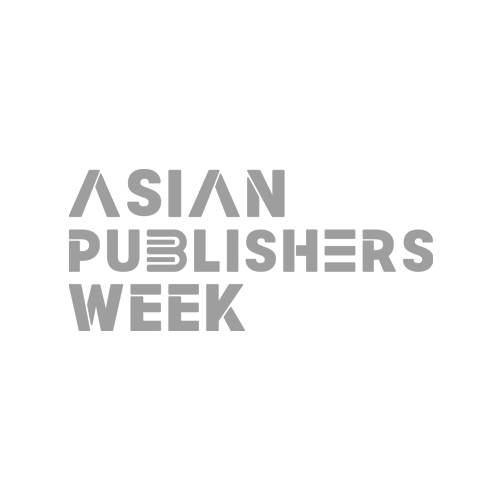Asian Publishers Week
Participant
Zhang Rui

Country : China
Company : Yilin Press
Job Title : Editor(Foreign Literature)
E-mail : zhangrui@yilin.com
Work Experience in Publishing
Since 2011, I have been engaged in the publishing of foreign literature. I have initiated over 30 projects that generate both social and economic benefits. Numerous books I served as chief editor for have been recognized by the market and industry experts, and have won multiple prestigious awards.
I independently led and coordinated the publishing of “Classics of World Epics Serie”. I independently led and coordinated several key publishing projects of Phoenix Publishing & Media Group, including “Jon Foss’s Works” , “Modern Poetry Series” , “Cees Nooteboom’s Works” , and “Central and Eastern European Literary Classics Series” . I also participated in coordinating projects such as Selected Works of Italo Calvino and Chimamanda Ngozi Adichie.
I served as coordinator for works by multiple authors, including Works of Márai Sándor, Wislawa Szymborska, Anne Carson, Krasznahorkai László, Mircea Cărtărescu, Maria Stepanova. Additionally, I independently planned publications such as Hugo Claus’s The Sorrow of Belgium, a collection of Anne Carson’s six works, and etc. I acted as chief editor for Chinese writer Li Jingze’s The Story of Blue Birds and Empty Mountain: A Collection of Lectures on Literature and Humanity.
Current Projects
Currently, the projects I am working on include the following:
- The publishing, planning, and marketing of Morning and Evening and Septology by Jon Fosse, laureate of the Nobel Prize in Literature;
- The publishing of six works by Anne Carson, a Canadian classical studies professor, translator, and poet, including Eros the Bittersweet and Autobiography of Red, for which renowned Harvard University professor Tian Xiaofei has been invited to write the preface;
- Preliminary planning for Harmonia Caelestis, the magnum opus by celebrated Hungarian writer Esterházy Péter;
- The exhibition book Cinema Never Stops Questioning: The Cinematic Life of Lee Chang-dong, co-planned by South Korean writer Lee Chang-dong and the Jeonju International Film Festival;
- As well as the new book publishing work for Romanian writer Mircea Cărtărescu and Russian writer Maria Stepanova.
Main Interest
My main interest lies in foreign literature, including not only classical literature but also contemporary and modern literature. In terms of regions, the areas I am currently interested in are Central and Eastern Europe, Southeast Asia, and Latin America. The themes of the works that interest me are related to history and culture, social changes, women’s rights, and etc.
Experience Related to This Year’s Topic
My professional experience aligns closely with the themes of “New Horizons in Asian Literature,” particularly in cross-border translation, regional market engagement, and find emerging voices.
In translation collaboration, I have overseen projects that demand cultural nuance—such as publishing Lee Chang-dong’s works and planning Anne Carson’s translations with prefaces by Harvard’s Tian Xiaofei. These efforts required balancing linguistic accuracy with contextual authenticity, ensuring themes like societal reflection and human complexity resonate across cultures, mirroring the focus on translated work case studies at this year’s forum.
In distribution and regional strategy, my work with authors from diverse Asian and global regions (e.g., coordinating “Middle Eastern European Literary Classics Series” and planning Southeast Asian-focused projects) has honed an understanding of varied readership dynamics. For instance, promoting “Jon Fosse’s Works” and “Modern Poetry Series” involved tailoring marketing to align with regional preferences—whether leveraging literary festivals in East Asia or digital platforms in Southeast Asia—echoing the forum’s focus on distribution strategies.
Regarding readership insights, my focus on themes like historical culture, social change, and women’s awakening (evident in published works such as The Sorrow of Belgium and Anne Carson’s feminist-tinged poetry) stems from observing how these narratives transcend borders. This aligns with exploring consumption patterns across Asian countries, as these themes resonate uniquely in different contexts—from East Asia’s focus on modern societal shifts to Southeast Asia’s engagement with post-colonial narratives.
Finally, in uncovering new literary horizons, I have actively sought underrepresented voices, such as Romanian writer Mircea Cărtărescu and Russian author Maria Stepanova, alongside Korean literary figures. This commitment to diversifying the literary landscape mirrors the forum’s emphasis on new discoveries in regional literatures, fostering a broader, more inclusive vision of Asian and global literary exchange.
What would you like to discuss related to this year’s topic?
The recent surge in the popularity of Asian literature is a compelling cultural phenomenon, rooted in a confluence of global dynamics. As the world becomes more interconnected, readers are increasingly craving narratives that transcend Western-centric perspectives, seeking stories that offer nuanced insights into diverse lived experiences. Asian literature, with its rich tapestry of traditions, histories, and contemporary struggles, has emerged as a powerful response to this demand. This rise is not merely a trend but a reflection of a broader shift towards recognizing the global significance of Asian voices.
Several Asian authors and works have captured international attention, embodying this growing influence. For instance, the works of South Korean writer Han Kang, such as The Vegetarian, delve into profound themes of identity, societal pressure, and existential crisis, resonating with readers worldwide through their raw emotional intensity. Japanese author Haruki Murakami, a long-standing figure in global literature, continues to enchant audiences with his blend of magical realism and meditations on modern life. Closer to regional interests, Vietnamese writer Nguyễn Phan Quế Mai’s The Mountains Sing offers a poignant exploration of family and war in 20th-century Vietnam, highlighting the richness of Southeast Asian literary traditions. These authors, among others, showcase the diversity of Asian literature, proving that it cannot be reduced to a monolithic entity.
The identity of Asian literature is a complex and evolving construct, shaped by both internal dynamics and external perceptions. It is not defined by a single cultural or aesthetic framework but rather by a mosaic of regional traditions, from the classical poetry of China and Japan to the postcolonial narratives of India and Southeast Asia, and the diasporic writings of Asian communities worldwide. This multiplicity is its strength—Asian literature simultaneously carries the weight of historical legacies and engages with contemporary global issues, creating a unique space where local and universal themes intersect. It resists easy categorization, challenging the notion of “Asianness” as a fixed identity and instead embracing fluidity and hybridity.
In terms of market potential, Asian literature holds immense promise in our publishing landscape. Readers are increasingly drawn to stories that illuminate different cultural contexts, and Asian literature fulfills this need by offering windows into societies undergoing rapid transformation, grappling with issues like modernization, social inequality, and cultural preservation. Works that explore themes such as history and culture, social change, and women’s awakening—topics that align with broader global conversations—are particularly resonant. For example, narratives centered on women’s empowerment in Asian societies, such as those by Indian author Arundhati Roy or South Korean novelist Cho Nam-Joo, strike a chord with readers invested in gender equity movements worldwide.
Moreover, the growing diasporic Asian communities globally serve as both an audience and a bridge, fostering greater appreciation for Asian literary works. Publishing houses that invest in translating and promoting diverse Asian voices not only tap into a growing market but also contribute to fostering cross-cultural understanding. As we continue to witness shifts in global power dynamics and cultural flows, Asian literature is poised to play an even more central role in shaping global literary discourse, offering stories that are both deeply rooted in specific contexts and universally human.
Please name any Korean writers, books and publishing companies that you are familiar with.
Han Kang(한강): The Vegetarian, Human Acts, The White Book
Kim Ae-ran(김애란): Your Republic Is Calling You, The Confrontation, My Brilliant Life
Lee Chang-dong(이창동): Burning, Our Twisted Hero, The Book of Genesis
Kim Young-ha(김영하): Black Flower, The Pigeon, Empire of Light
Publishing Companies: Munhakdongne Publishing Group (문학동네),Changbi Publishers (창비),Minumsa (미눔사),Hakjisa Publishing Group (학지사)
Your reasons for applying to the Asian Publishers Week 2025.
Participating in this year’s Asian Publishers Week, themed “New Horizons in Asian Literature”, aligns closely with my professional focus and aspirations, as it directly addresses the core dynamics of cross-border literary exchange that I engage with daily.
First, the forum’s focus on case studies of translated works resonates deeply with my experience in publishing Asian literature. Having overseen translations of works by authors like Lee Chang-dong and planned projects involving scholars such as Tian Xiaofei for prefaces, I am eager to explore how peers navigate the nuances of cultural contextualization in translation—balancing linguistic precision with the preservation of regional idioms and emotional resonance. Learning from successful cross-border translation models will enhance my ongoing efforts to bring works from underrepresented Asian regions (e.g., Southeast Asia, Latin America) to broader audiences.
Second, discussions on distribution and marketing strategies are crucial for expanding the reach of the Asian literary projects I manage, such as the upcoming publications of Mircea Cărtărescu and Maria Stepanova. Understanding region-specific tactics—whether leveraging digital platforms in Southeast Asia or literary festival partnerships in East Asia—will help tailor promotion plans for diverse markets, ensuring that works with strong cultural and social themes (e.g., historical memory, women’s awakening) connect with their target readerships effectively.
Third, analyzing readership characteristics and consumption patterns across Asian countries is vital for refining my direction. My current focus on regions like Central and Eastern Europe, Southeast Asia, and Latin America demands insights into how local audiences engage with literary themes: for instance, whether Southeast Asian readers prioritize social realism over experimental forms, or how Latin American magical realism resonates differently across Asian markets.
Lastly, exploring new discoveries in each country’s literary landscape aligns with my commitment to uncovering emerging voices. The forum’s spotlight on fresh talents and underrepresented narratives—whether from South Asia’s indie literary scenes or East Asia’s experimental poetry—will offer valuable leads for expanding my publishing portfolio. This aligns with my goal of diversifying the Asian literature I curate, beyond established classics to include contemporary works that reflect evolving social and cultural currents.
In essence, this forum serves as a critical platform to exchange practical insights, forge partnerships, and deepen my understanding of the evolving Asian literary ecosystem—ultimately enabling me to better bridge regional voices with global readerships.
Your Company Profile Yilin Press
Company Address: Foreign Literature Dept Yilin Press, Ltd Room 1510, Building A 1 Hunan Road Nanjing 210009 P. R. China
Number of Employees: 181
Specialty: Foreign Literature, Education, Chinese Literature, Humanities and Social Sciences
Founded in 1988, Yilin Press, Ltd is one of the few professional translation publishers in China. Presently its publications include translations of foreign literature and social sciences, bilingual dictionaries, foreign language textbooks and references, academic treatises on foreign literature and linguistics, as well as contemporary Chinese culture and literature. With its professional editors and qualified translators of English, French, German, Russian, Japanese, Spanish, and Italian, Yilin Press, Ltd publishes over 800 titles every year. Yilin Press, Ltd also publishes translations of Chinese fiction and non-fiction books in English and some other languages. Yilin Press, Ltd is a frequent winner of various book awards, book design awards and printing quality awards.
Since its founding, Yilin Press, Ltd has been committed to introducing “first-class writers, first-class works through first-class translations”. It stresses culture building by introducing world classics and contemporary works to Chinese readers. Yilin Press, Ltd will maintain its advantage as a professional translation publisher, enhance its international cooperation, and present Chinese readers and foreign readers with the best and latest works.
